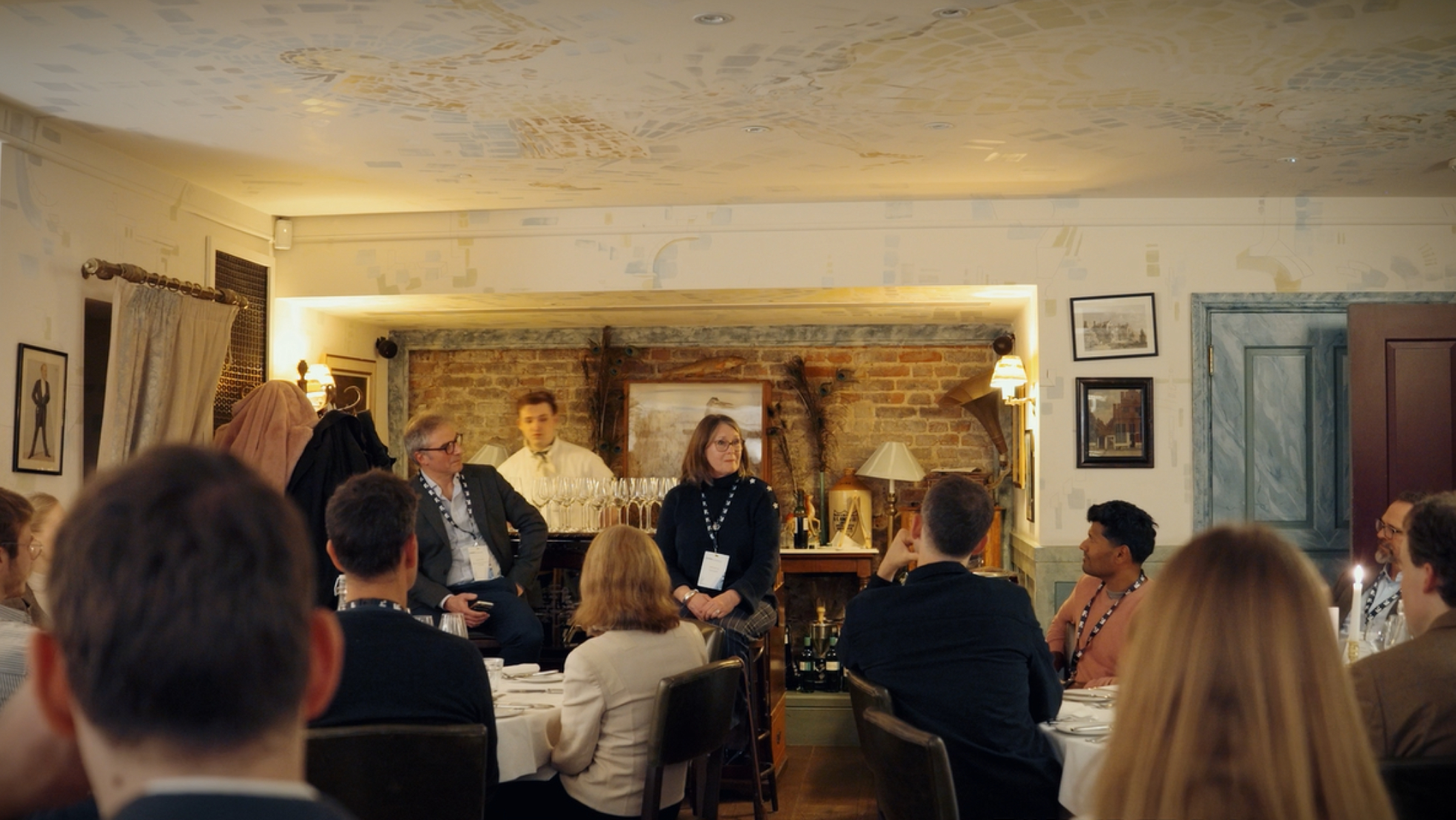
Last month, we came together with Founders’ Community members in Clerkenwell, London for an evening dedicated to exploring the landscape and trajectory of AI. Hosted in partnership with Giant Ventures, the event at the beautiful Zetter Townhouse featured insights from Martina King, CEO of Featurespace – a University of Cambridge spinout committed to making the world a safer place to transact, which recently achieved a successful £700m+ exit.
In December 2024, Featurespace announced their impressive £700m+ exit to Visa. Martina shared valuable lessons on achieving product-market fit, the importance of involving the team in the journey from the beginning, and the excitement surrounding the positive ripple effect such an exit can have on the UK tech ecosystem.
Leading thoughtful discussions throughout the evening, Martina recounted her extensive entrepreneurial experience in media and technology – from working at the Guardian, Capital Radio, and Yahoo UK to being introduced to Professor Bill Fitzgerald, who had invented a fundamental technology.
As one of the first inventors and among the top five AI experts in adaptive behavioural analytics, Bill needed to work out the product-market fit to scale. Alongside Martina and co-founder Dave Excell, they experimented, iterated, and built Featurespace. Today, Featurespace is the world’s leading provider of Enterprise Financial Crime prevention software, risk-scoring events, and preventing fraud and financial crime in more than 180 countries. It continues the direction set by its academic founders from the University of Cambridge, Professor Bill Fitzgerald and his PhD student Dave Excell.
Fostering a rich exchange of perspectives, the agenda-packed dinner brought together a mixed group of experts, including seasoned entrepreneurs, investors of all stages, and industry executives, all with a passion for inspiring and supporting the next generation of new ventures.
“You’re just seeing the very early innings of AI starting to have a profound impact.”
Jim Glasheen, Chief Executive, Cambridge Enterprise
Throughout the evening, we captured the drive and curiosity of our community members. Questions like “What are you excited about coming out of Cambridge linked to AI?” and “Which industries do you think AI is going to play a major role in next?” sparked dynamic conversations and confirmed a shared enthusiasm for the future AI landscape, both within Cambridge and beyond. Discussions spanned various sectors, including education, climate, financial crime, robotics, legal, insurance, life sciences, biotech, and defence.
“Artificial intelligence is a general-purpose technology and for that reason it will evolve most, if not all, industries. “
Gerard Grech CBE, Managing Director, Founders at the University of Cambridge
Three emerging Founders from this year’s START Accelerator programme also showcased how they’re making waves in the AI space. Rebekka Mikkola at Trismik discussed their revolutionary work in the field of Large Language Model (LLM) testing. Ushnish Sengupta at Sqwish presented their research in developing an efficiency layer for enterprise AI. And, Daniel Fredrich at Pinepeak pitched their physics-driven technology that can predict wildfire risk and behaviour across any terrain, anywhere in the world.
“We just fundamentally believe that Founders was so required at Cambridge – a unifying force that could work across the University and bring together all the different stakeholders. And I think the result will be many more billion-dollar companies coming out of Cambridge.”
Tommy Stadlen, Co-founder, Giant Ventures
The event was a huge success, with great discussions building strong connections within our growing community. We look forward to continuing these conversations, exploring the potential of UK tech advancements, and accelerating action together. Until next time.